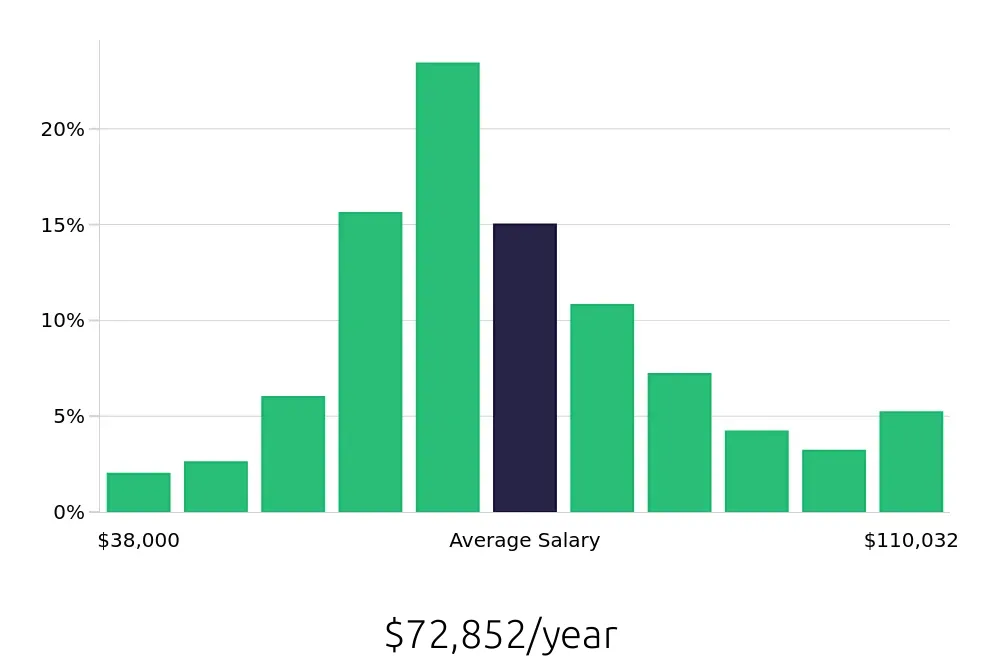Position
Overview
A Polysomnography Technician plays a crucial role in the healthcare field. They work with patients to diagnose and treat sleep disorders. Technicians set up and operate equipment that monitors brain waves, breathing, and the movement of the eyes and legs during sleep. This information helps doctors understand what happens when a person sleeps. They also observe the patient to note any sleep-related behaviors.
Daily tasks involve preparing the patient for a sleep study. This includes explaining the procedure and attaching electrodes to the patient’s body. Technicians ensure all equipment works correctly and make any necessary adjustments. During the study, they monitor the patient’s vital signs and gather data. They analyze the data to identify any sleep disturbances. Technicians prepare detailed reports for doctors. They also answer any questions doctors might have about the study.
Becoming a Polysomnography Technician can lead to a fulfilling career in the healthcare industry. This specialized role requires specific skills and training, but the process is clear and attainable. With the right steps, job seekers can move towards this rewarding profession.
The journey to becoming a Polysomnography Technician involves several key steps. Following this path can help individuals secure a stable and important career. Here are the essential steps:
Polysomnography technicians play a key role in diagnosing sleep disorders. They help ensure patients receive the right care. The journey to becoming a technician involves several steps. First, completing a program in sleep technology takes about one to four years.
This program covers important topics like sleep disorders, testing methods, and patient care. Graduates often receive a certificate, diploma, or associate degree. Most employers prefer candidates with formal training. After completing the program, the next step is gaining experience. Many technicians start in hospitals, sleep centers, or clinics. Some states require a license or certification. This usually involves passing an exam and meeting work experience requirements. With dedication, polysomnography technicians can find rewarding careers in healthcare.
Polysomnography Technicians perform sleep studies to diagnose and treat sleep disorders. They operate and maintain sleep diagnostic equipment, ensure patient comfort, and analyze sleep data to assist physicians in making accurate diagnoses.
Responsibilities:
Qualifications
A Polysomnography Technician, often called a sleep technician, plays a vital role in the healthcare industry. They monitor patients during sleep to help diagnose sleep disorders. This job involves using special equipment to track brain waves, oxygen levels, and heart rate. Technicians work in hospitals, clinics, or sleep centers. They often work night shifts, but some jobs offer day shifts.
Choosing this career offers both benefits and challenges. Understanding these can help someone decide if this path is right for them. Here are some pros and cons to consider:
Becoming a Polysomnography Technician offers a promising job outlook. The Bureau of Labor Statistics (BLS) reports that around 14,300 job positions open each year. This is a steady number that is expected to grow. From 2022 to 2032, the number of job openings is expected to increase by 7.5%. This shows that more employers are looking for skilled professionals in this field.
Job seekers will find that this role comes with a good salary. The BLS reports that the average national annual compensation for Polysomnography Technicians is $55,830. Hourly, this translates to about $26.84. This pay scale reflects the importance and demand for skilled sleep disorder specialists. The field values professionals who can accurately diagnose and help treat sleep-related issues.
For those entering the job market, the field of Polysomnography Technology offers stability and growth. With an increasing demand for sleep disorder treatments, the outlook is positive. Job seekers can look forward to a steady number of new positions each year and a growing field. This role not only provides a stable career path but also offers competitive compensation.
